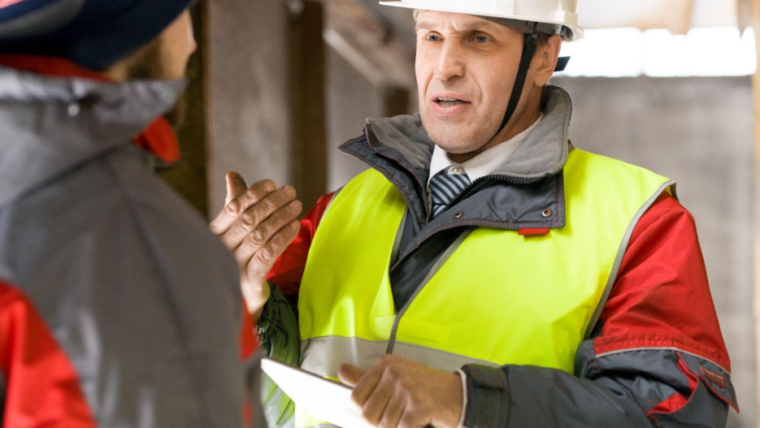
People who love good food, fun times, and a great atmosphere will love running a restaurant.
Even though it sounds great, it’s a risky business, and you should be prepared to work long hours.
However, if you’re passionate about starting a restaurant and can be successful at it, it can be one of the best things you’ll ever do with your life.
To be successful, follow these essential tips for starting a restaurant.
Table of Contents
- 1 Manage Your Risk
- 2 Restaurants are Risky
- 3 Restaurant Insurance Costs
- 4 Operate a Safe Restaurant
- 5 Slips and Falls
- 6 Kitchen Fires
- 7 Start Small and Let Your Restaurant Grow
- 8 Plan for Seasonal Slumps
- 9 Forecast Your Cash Flow
- 10 Stay Consistent
- 11 If It’s Not Broken, Don’t Fix It
- 12 Hours of Operation
- 13 Food Isn’t The Most Important Thing
Manage Your Risk
Starting a restaurant has plenty of risks. In fact, restaurants are known for being high-risk.
Restaurants are Risky
The restaurant industry has high startup costs and narrow profit margins. In addition, you will have to work long hours, so there’s an increased risk of burnout. Employee turnover rates are high across the industry, and customers can get on your last nerve.
Wherever possible, you should reduce your risk and purchase the right insurance policies to fill in the gaps in your risk management plan.
Restaurant Insurance Costs
How much does restaurant insurance cost? That depends on your state, your number of employees, and several other factors. However, you can get an online quote in a matter of minutes.
You can choose from different policies to tailor an insurance package to fit your needs. For example, choose from general liability, worker’s compensation, commercial property, and more.
You can save money by bundling your policies, another smart thing to do when getting restaurant insurance california (or elsewhere more relevant) is to do a risk assessment of your business. This can reduce your risk factor and make your initial insurance price cheaper, it will also decrease the likelihood of an accident happening down the line which could increase your insurance premiums.
Operate a Safe Restaurant
Kitchens are particularly dangerous, and even though your general liability policy will protect you when employees or customers have accidents, you should make sure to buy good kitchen equipment from somewhere like here. That way, you will minimize the risk of injury due to poor quality, or even unsafe, equipment.
Slips and Falls
Slips and falls are extremely common in the restaurant business. Wet floors in service and dishwashing areas can make it hazardous for employees. You can prevent many slips and falls by ensuring that your employees wear non-slip shoes.
Some companies order non-slip shoes for every new hire and take the cost out of their first few paychecks. A company called Shoes for Crews has a Safety Footwear Program that makes that easy to manage.
Kitchen Fires
Combine grease and open flames, and you get fires. Restaurant fires destroy thousands of restaurants each year.
The National Fire Protection Agency reported over 7,000 fires in a four-year period, which caused three deaths, 110 injuries, and over $160 million in damages.
In restaurants, small, cramped kitchens, dirty exhaust hoods, and clogged grease traps contribute to the cause of fires.
To avoid fires in your restaurant, store combustible items away from heat and flames, don’t let staff leave cooking appliances on when they aren’t being used, and keep your restaurant clean.
Schedule regular professional exhaust hood cleaning and make sure that smoke detectors and fire extinguishers are in proper working order.
Start Small and Let Your Restaurant Grow
Cash flow issues are one of the biggest problems that restaurants have. Start small and let your business grow to avoid cash flow issues when running a restaurant.
You have to have money to purchase food and supplies and pay employees wages, or you won’t be able to operate consistently. Therefore, consistency is one of the most important things to restaurant customers.
Plan for Seasonal Slumps
Restaurants have slow seasons, and you have to plan for them.
Laying off employees can be one of the most challenging parts of operating a restaurant. You may also need to cut back on the supplies you purchase.
Forecast Your Cash Flow
Your cash flow forecast will include all of your expected revenue and expenses. One of the biggest problems with restaurants is that revenue goals aren’t always met.
You might need the assistance of an accountant to help you manage your cash flow. An accountant can also devise ways to help you get cash infusions when you need them.
Stay Consistent
Humans are creatures of habit, and they often choose your restaurant over another because they know what to expect from your restaurant.
If It’s Not Broken, Don’t Fix It
When it comes to your menu, if it’s working, don’t change it.
While some customers might complain that you don’t have enough variety, you will get many more complaints if you take their favorite chicken sandwich off the menu.
You can offer daily specials to bring more variety to your menu.
You should also avoid changing your recipe, even just a little. For example, if you think your customers won’t notice that you’re using a different cut of beef for your pot roast, then you’re wrong.
Hours of Operation
People need to be able to rely on your restaurant’s hours of operation.
You might have people who visit your restaurant once a month from a nearby city. If they come to your restaurant and find that you’re not open, they will eat at your competitor’s restaurant and might not return.
Food Isn’t The Most Important Thing
Restaurants are all about dealing with people. The food is secondary to the main product, which is customer service.
Your employees are essential, and you need to treat them that way. If you treat your employees well, they will love working for you.
People can go anywhere to get a bite to eat. They are going to come to your restaurant because of the way that you treat them.


